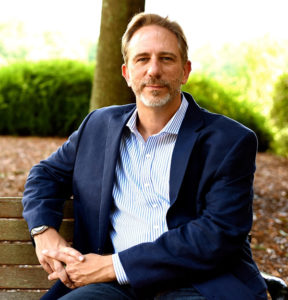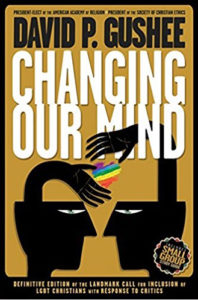A Baptist scholar who famously changed his mind on homosexuality says a new Cooperative Baptist Fellowship policy allowing the possible hiring of LGBTQ Christians for some, but not all, staff positions “may be the worst of all possible options,” distancing the very voices on both ends of the spectrum that CBF leaders were hoping to appease.
Mercer University ethics professor David Gushee described reaction to a decision by the CBF Governing Board to change an outright prohibition against hiring LGBTQ Christians to a partial ban excluding them from certain jobs as “a moment of crisis” for the 1,800-church Fellowship.

David Gushee
“It is hard to imagine a situation in which this ill-conceived policy/guideline will not weaken CBF considerably,” Gushee said in remarks prepared for the 2018 William Johnson Lectures March 17-18 at Crescent Hill Baptist Church in Louisville, Ky.
Gushee criticized the Feb. 9 vote dropping an 18-year-old prohibition against hiring a “practicing homosexual” while continuing to limit management jobs to individuals “who practice a traditional Christian sexual ethic of celibacy in singleness or faithfulness in marriage between a woman and a man” as a “non-decision decision.”
It affirms neither the conservative ground staked out by the Southern Baptist Convention, he said, nor the full inclusion trumpeted by the progressively minded Alliance of Baptists, while “using Baptist polity as an excuse.”
“CBF’s inability or unwillingness to do theological reflection and take a principled stand leaves them comparing most unfavorably to either the SBC or the Alliance of Baptists,” Gushee said. “For that matter, almost every denomination takes stands on issues, and has scholars who help them do so.”
Gushee, author of Changing Our Mind — a 2014 book chronicling his own shift from a “traditionalist” view of human sexuality to a “revisionist” perspective that same-sex relationships are not inherently sinful — said he doubts any process for deliberating issues related to LGBTQ inclusion could produce an outcome without winners and losers.
 A nearly two-year Illumination Project leading up to the policy change, however, turned out to be “a drafting process undertaken entirely by straight people.” That, he said, violates “a cardinal rule at least of current conversations about difficult issues, that the people most affected by a decision should be in the room, should have a voice, when the decision is being made.”
A nearly two-year Illumination Project leading up to the policy change, however, turned out to be “a drafting process undertaken entirely by straight people.” That, he said, violates “a cardinal rule at least of current conversations about difficult issues, that the people most affected by a decision should be in the room, should have a voice, when the decision is being made.”
Further, not including a single CBF-related academic in the drafting group, Gushee said, “would have been inconceivable in almost any other denominational context I can think of.” The result, he said, is a document devoid of “real substantive biblical/theological/ethical reflection” that is “based on majority opinion in CBF churches.”
Gushee said there is no way for Christians to arrive at a position advocating full LGBTQ inclusion while using study methods that are “ultimately drawn from some version of white male conservative Christian inerrantism.”
By that he means “the interpretations of scripture offered by privileged straight white men is treated as God’s infallible truth, in which the suffering of the groups we are debating is not really relevant, and in which the kingdom of God-centered, justice-making, liberating Jesus is not the Jesus who is in the conversation,” he said.
By drafting “a largely discriminatory policy,” Gushee said, the CBF granted ground to “traditionalists” who believe same-sex relationships are intrinsically sinful and wrong. At the same time, opening some lower-level posts to LGBTQ Christians it “implicitly abandoned” the traditional view, “but without doing the theological work to ground it.”
“The result was a policy that pleased neither the committed traditionalists nor the committed revisionists, most particularly LGBTQ people and their most committed allies,” Gushee said. “It also offends those whose main concern about CBF was a lack of a substantive theological-ethical vision, only reinforced now.”
Decisions by two statewide affiliates of the Southern Baptist Convention to stop forwarding church funds to the CBF reveals the impact on one side, Gushee said, while Internet chatter among the younger generation of CBF insiders reveals the other.
Gushee, lead organizer of a Baptist Conference on Sexuality and Covenant co-sponsored by the CBF in 2012, said he is “not a CBF loyalist in any deep way.” At the same time, he said he feels more at home in Fellowship contexts than he did in “the SBC world” while teaching at Union University in Tennessee for 11 years before moving to CBF-supported McAfee School of Theology at Mercer University in 2007.
